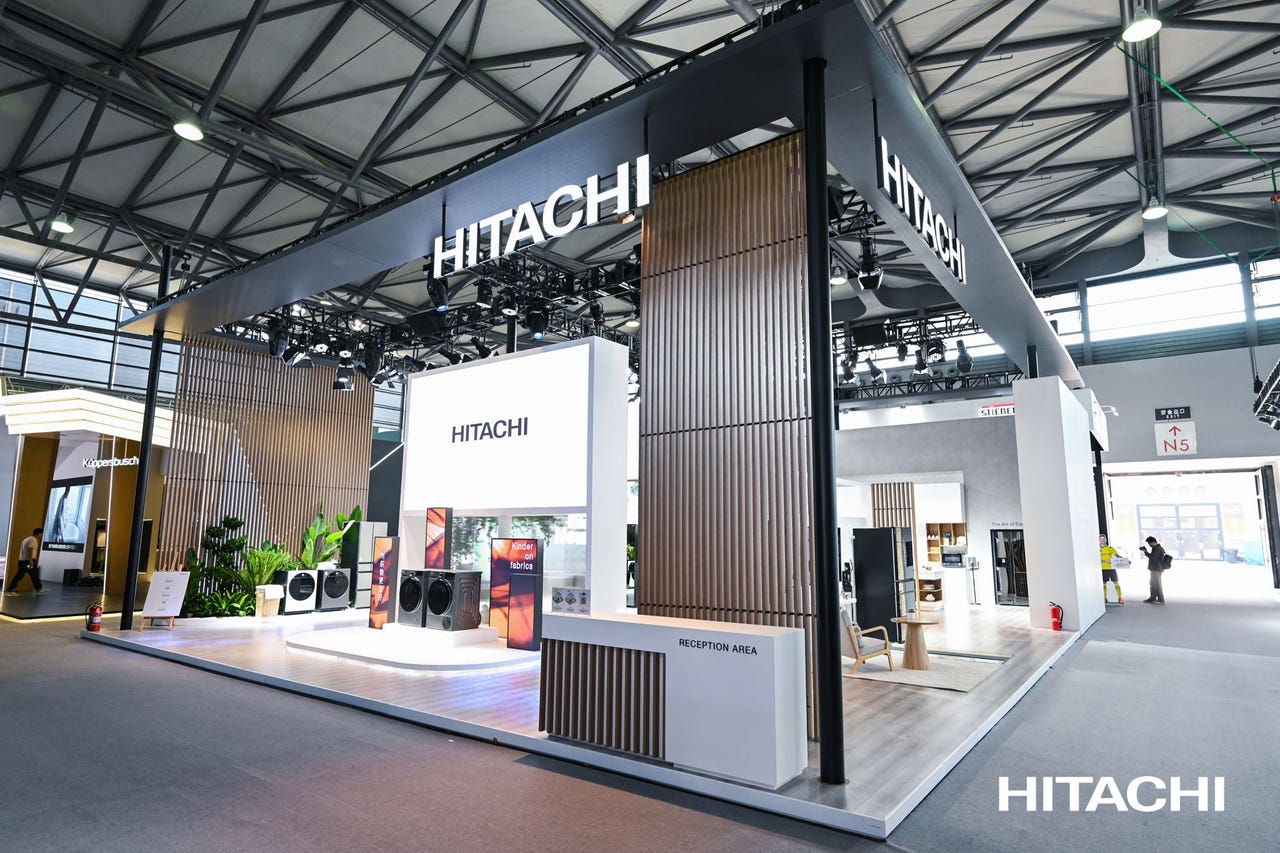This company says AI can help design sustainable smart home appliances


Smart home devices should not only enable consumers to live better and save them time and cost, the technologies should also be made to last as demand for sustainable products continues to grow.
To achieve this broad range of aims, manufacturers will need to turn to artificial intelligence (AI) for answers, according to Zafer Üstüner, CEO of Arçelik Hitachi Home Appliances and Asia-Pacific CCO of Arçelik Global.
Also: Thanks to my 5 favorite AI tools, I'm working smarter now
Üstüner describes the role of AI as critical and said to ZDNET that his company taps AI not only in the product design and development process, but also uses the technology to enhance other business processes, including communications and productivity.
Formed in July 2021 as a joint venture between Arçelik and Hitachi Global Life Solutions, Arçelik Hitachi Home Appliances provides manufacturing and sales services for Hitachi-branded home appliances outside Japan. Its product range includes refrigerators, washing machines, and vacuum cleaners. The company is based in the Thai capital, Bangkok.
AI has enabled Arçelik Hitachi to learn from its mistakes and finetune its production flows, so it can improve operating costs and efficiencies, Üstüner said in a video interview.
Also: ChatGPT vs Bing Chat vs Google Bard: Which is the best AI chatbot
AI helps summarize and simplify information, making it easier to understand data on a larger scale. These insights are then used in its operations and to track consumer demands, so products the company builds can better meet expectations, he said.
Asked what defines smart home appliances today, Üstüner pointed to products that improve customers' quality of life, as well as saving them time, energy, and cost, which means building devices that are made to last.
With advancements in technology, he said production has become easier and materials are cheaper compared to 50 years ago. In the fashion industry, for example, new designs can be churned out faster and at lower cost, making it more affordable for consumers to replace garments after just a few wears.
"But what's the impact on the world?" said Üstüner, adding that consumers are increasingly conscious about the environmental impact of the products they purchase. This approach puts emphasis on the durability and sustainability of products.
Also: This AI chatbot can sum up any PDF and answer any question you have about it
For manufacturers such as Arçelik Hitachi, he said the quality of its products will become more important. Customers will also want to know if the materials used can be recycled, he added.
Such requirements might grow to become more important than the intelligence of a smart home device, he added.
Arçelik Hitachi is aiming to recycle 99% of its waste by 2030 through waste reduction and alternative recycling projects. It also aims to achieve 4% gains annually in energy efficiency through various energy management initiatives that will cut its power consumption.
The company's efforts include ensuring its factories use more clean energy and consume less water. Products should also be made to last longer and use materials that have minimum impact on the environment, Üstüner said.
However, consumers will then have to choose between paying more for products that last longer or less for those that are not as sustainable.
"You can't have the best quality at the lowest price," Üstüner said, adding that he believes Arçelik Hitachi stands on the "right side" by making products that might not be the cheapest, but are sustainable.
Also: Generative AI now requires developers to stretch cross-functionally. Here's why
He said compaies should also should continue to deliver benefits for consumers, which means adding more intelligence into home appliances. For instance, Arçelik Hitachi is working on technology that can help its refrigerators to predict a potential malfunction and schedule a maintenance before the system fails.
Cameras can also be placed inside the refrigerator, with the ability to recognize food items and their shelf life, and trigger alerts when an item needs to be replaced. Customers can further view the contents of the fridge while they are at the supermarket and determine what items they need to replenish.
These systems can be facilitated with technologies that are already available, Üstüner said, but they need to be implemented at affordable price points to drive consumer demand.
The systems also need to operate on a platform that is secured and which protects personal data, he said. Thieves can breach a smart home appliance to figure out when someone is out, so a poorly secured device has wide-reaching consequences for customers.
Üstüner said this reality drives Arçelik Hitachi to think about data security from the start -- at the product design process. Rigorous testing is also critical before any new product is rolled out, he added.
Similar efforts go toward ensuring the company's use of AI is safe and its collection of customer data for analytics is secured, he said.
Also: Implementing AI into software engineering? Here's everything you need to know
According to analyst IDC, demand for smart home devices has been falling, with global shipments dipping 5.6% year on year to 186 million in the first quarter of 2023. Smart speakers and networked video entertainment devices saw the steepest declines, dropping 15.4% and 7.8%, respectively.
The research firm has projected an overall 1.8% drop in global shipments for 2023, with downward market pressure from weak consumer demand and economic volatility.
The market, however, is expected to grow this year and through 2027, when shipments will hit 1.1 billion.
"While there have been pockets of growth, the market has largely stalled due to lack of meaningful upgrades between one generation of devices and the next," said Jitesh Ubrani, IDC's research manager for mobility and consumer devices.